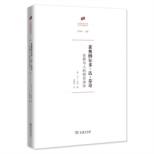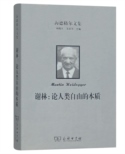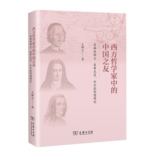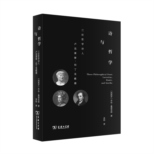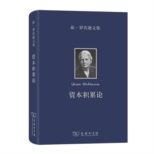显示全部内容简介
George Eliot (1819—1880),the pseudonym of Mary Ann Evans,was born at South Farm, Arbury,in Warwickshire,on 22 November 1819. She was an eager student at school and later became interested in social and philosophical problems. In 1841 Mary Ann and her father moved to Coventry,where she got acquainted with a distinguished freethinker Charles Bray. It was under his influence that she abandoned her narrow religious views.
After the death of her father in 1849 Mary Ann went to London and started translating some philosophical works from German into English. In 1850 she contributed articles to the "Westminster Review" and later became its co-editor. She also published her translations of the German materialist philosopher Feuerbach's Essence of Christianity and Strauss's Life of Jesus.
In 1851 Mary Ann met George Lewes,a well-known critic. They fell in love with each other and decided to live together,as he was a married man. In July 1854 they left for Germany and when they returned to England,they found that they were ostracized.
Amos Barton began to appear in Blackwood's Magazine in January 1857. As it was favourably received,she wrote two more stories,Mr. Gilfil's Love Story and Janet's Repentance,and published all three as Scenes of Clerical Life in 1858. When Adam Bede appeared in 1859,she had succeeded in establishing herself as a novelist. The Mill on the Floss came out in 1860 and Silas Marner in 1861. Romola appeared in 1863. Felix Holt,the Radical,a novel dealing with English politics,appeared in 1866,Middlemarch in 1871—1872,and Daniel Deronda in 1876.
Lewes died on 28 November 1878. In the spring of 1880 she married John Cross but she died shortly afterwards.
The Mill on the Floss (1860) centres on Tom and Maggie,both children of Mr. Tulliver,the miller of Dorlcott Mill on the Floss. Tom is an unimaginative boy while Maggie is a noble-minded girl,‘a creature full of eager,passionate longings for all that is beautiful and glad,thirsty for all knowledge'. She loves Tom very dearly,but this sisterly affection draws no response. She finds that Philip Wakem,a deformed boy,has a temperament akin to her own. Philip can do Maggie more justice than her coarse and narrow-minded brother.
Unfortunately Philip's father is the sworn enemy of Mr. Tulliver,who is involved in a lawsuit and made bankrupt on that account. The Mill,the land,and everything else he owns become the property of Mr. Wakem. Consequently Mr. Tulliver is compelled to serve under Wakem so that his family can stay in the old place. However,he is not reconciled to his lot. Tom,too,feels keenly the humiliation and succeeds in helping his father pay back the several hundred pounds he owes to his creditors. Maggie,in her distress,forms plans of self-sacrifice,ready to do without earthly happiness altogether. She carries on what Philip calls ‘this self-torture’ and ‘this long suicide’.
When Tom discovers the secret affection between Maggie and Philip,he tries to make his sister promise never to see him again,alluding at the same time to Philip's deformity,which offends her deeply.
Mr. Tulliver soon dies after a scene of violence with Wakem. Maggie then leaves the Mill to work in a school and afterwards pays a visit to her cousin Lucy Deane at St. Ogg's.
Lucy is now courted by Stephen Guest,a rich handsome young man who happens to be struck by Maggie's beauty. One day while boating on the river they are carried away by the tide. Stephen offers to marry her but she turns him down on the ground that she cannot achieve her own happiness by sacrificing others.
Tom turns Maggie out of his house. Lucy does not blame her for she knows Maggie has given up Stephen for her sake. Philip,too,is sympathetic. In his letter he tells Maggie that he believes in her,calling her ‘my loving,large-souled Maggie’.
Then comes a great flood which engulfs the town. It is Maggie who rescues Tom from the Mill. When Tom sees death approaching,he clasps Maggie in his arms. The boat is capsized and brother and sister,reconciled at last,go down in an embrace never to be parted.
The Mill on the Floss is essentially autobiographical,though the background and setting have been very much altered. It is an exquisite detailed rendering of the growth of an idealistic girl to young womanhood,a girl of intellectual distinction and generously passionate feelings. Equally brilliant in a different way is the description of the Tulliver family and of the Dodsons. They live in a materialistic world with a strong sense of property,self-regard and pride in family. All this is made interesting to us by the humour and shrewdness of George Eliot's observation.
George Eliot is one of the greatest among the many extraordinary English novelists who wrote during the 18th and 19th centuries. She was internationally admired in her life time and she continues today to hold her secure place in the first ranks of English writers. No serious critic would today question the importance of George Eliot's place in the development of the modern English novel. She is a pioneer in modern psychological narrative,designed to encourage in the reader sympathetic insight into the private worlds of the characters. She is a humanitarian of the humanitarians. She is one of the great interpreters of human nature.
As a novelist,essayist,and translator,George Eliot confronted major psychological, intellectual,and moral problems of the 19th century. In order to explore those problems fully she turned from essays to fiction,from discursive forms to aesthetic ones. She is at once a realist and artist. Realism is the basis of her artistic skill. Not only does she seek fidelity to the facts of life,but also fidelity to humankind itself.
In the hands of George Eliot the novel became moral and philosophical. Her world was for the most part that of the old-fashioned provincial life with which she had been familiar in her girlhood. She was always at her best when,as in Adam Bede,The Mill on the Floss,Silas Marner and Middlemarch,she kept close to the scenes and the types of characters she had early known and loved. She was determined to present men and events as she herself had seen them living and toiling in the actual world.
The philosophic element in her work,like her realism,connected her with the scientific tendencies of her age. George Eliot was a great thinker. Her novels are great essays on life. Her books are profoundly sad. The reader feels with her characters and the total effect of her novel is an increase of understanding and of compassion.
George Eliot's commitment to literary realism may have been partly due to her rationalistic upbringing,under the influence of Herbert Spenser and the French positivist,Auguste Comte. But its main source was her spontaneous sympathy with the poor and humble.
When Scenes of Clerical Life was published in 1858,Dickens wrote to congratulate her, adding that he felt sure that the book had been written by a woman. Her high achievement as an artist had been admired by writers as different as Tolstoy and Virginia Woolf. She brought a new seriousness to the novel,and a wider intellectual range. As Virginia Woolf suggested,she was the first English novelist to write exclusively for grown-ups.
Qian Anqi (钱安期)
After the death of her father in 1849 Mary Ann went to London and started translating some philosophical works from German into English. In 1850 she contributed articles to the "Westminster Review" and later became its co-editor. She also published her translations of the German materialist philosopher Feuerbach's Essence of Christianity and Strauss's Life of Jesus.
In 1851 Mary Ann met George Lewes,a well-known critic. They fell in love with each other and decided to live together,as he was a married man. In July 1854 they left for Germany and when they returned to England,they found that they were ostracized.
Amos Barton began to appear in Blackwood's Magazine in January 1857. As it was favourably received,she wrote two more stories,Mr. Gilfil's Love Story and Janet's Repentance,and published all three as Scenes of Clerical Life in 1858. When Adam Bede appeared in 1859,she had succeeded in establishing herself as a novelist. The Mill on the Floss came out in 1860 and Silas Marner in 1861. Romola appeared in 1863. Felix Holt,the Radical,a novel dealing with English politics,appeared in 1866,Middlemarch in 1871—1872,and Daniel Deronda in 1876.
Lewes died on 28 November 1878. In the spring of 1880 she married John Cross but she died shortly afterwards.
The Mill on the Floss (1860) centres on Tom and Maggie,both children of Mr. Tulliver,the miller of Dorlcott Mill on the Floss. Tom is an unimaginative boy while Maggie is a noble-minded girl,‘a creature full of eager,passionate longings for all that is beautiful and glad,thirsty for all knowledge'. She loves Tom very dearly,but this sisterly affection draws no response. She finds that Philip Wakem,a deformed boy,has a temperament akin to her own. Philip can do Maggie more justice than her coarse and narrow-minded brother.
Unfortunately Philip's father is the sworn enemy of Mr. Tulliver,who is involved in a lawsuit and made bankrupt on that account. The Mill,the land,and everything else he owns become the property of Mr. Wakem. Consequently Mr. Tulliver is compelled to serve under Wakem so that his family can stay in the old place. However,he is not reconciled to his lot. Tom,too,feels keenly the humiliation and succeeds in helping his father pay back the several hundred pounds he owes to his creditors. Maggie,in her distress,forms plans of self-sacrifice,ready to do without earthly happiness altogether. She carries on what Philip calls ‘this self-torture’ and ‘this long suicide’.
When Tom discovers the secret affection between Maggie and Philip,he tries to make his sister promise never to see him again,alluding at the same time to Philip's deformity,which offends her deeply.
Mr. Tulliver soon dies after a scene of violence with Wakem. Maggie then leaves the Mill to work in a school and afterwards pays a visit to her cousin Lucy Deane at St. Ogg's.
Lucy is now courted by Stephen Guest,a rich handsome young man who happens to be struck by Maggie's beauty. One day while boating on the river they are carried away by the tide. Stephen offers to marry her but she turns him down on the ground that she cannot achieve her own happiness by sacrificing others.
Tom turns Maggie out of his house. Lucy does not blame her for she knows Maggie has given up Stephen for her sake. Philip,too,is sympathetic. In his letter he tells Maggie that he believes in her,calling her ‘my loving,large-souled Maggie’.
Then comes a great flood which engulfs the town. It is Maggie who rescues Tom from the Mill. When Tom sees death approaching,he clasps Maggie in his arms. The boat is capsized and brother and sister,reconciled at last,go down in an embrace never to be parted.
The Mill on the Floss is essentially autobiographical,though the background and setting have been very much altered. It is an exquisite detailed rendering of the growth of an idealistic girl to young womanhood,a girl of intellectual distinction and generously passionate feelings. Equally brilliant in a different way is the description of the Tulliver family and of the Dodsons. They live in a materialistic world with a strong sense of property,self-regard and pride in family. All this is made interesting to us by the humour and shrewdness of George Eliot's observation.
George Eliot is one of the greatest among the many extraordinary English novelists who wrote during the 18th and 19th centuries. She was internationally admired in her life time and she continues today to hold her secure place in the first ranks of English writers. No serious critic would today question the importance of George Eliot's place in the development of the modern English novel. She is a pioneer in modern psychological narrative,designed to encourage in the reader sympathetic insight into the private worlds of the characters. She is a humanitarian of the humanitarians. She is one of the great interpreters of human nature.
As a novelist,essayist,and translator,George Eliot confronted major psychological, intellectual,and moral problems of the 19th century. In order to explore those problems fully she turned from essays to fiction,from discursive forms to aesthetic ones. She is at once a realist and artist. Realism is the basis of her artistic skill. Not only does she seek fidelity to the facts of life,but also fidelity to humankind itself.
In the hands of George Eliot the novel became moral and philosophical. Her world was for the most part that of the old-fashioned provincial life with which she had been familiar in her girlhood. She was always at her best when,as in Adam Bede,The Mill on the Floss,Silas Marner and Middlemarch,she kept close to the scenes and the types of characters she had early known and loved. She was determined to present men and events as she herself had seen them living and toiling in the actual world.
The philosophic element in her work,like her realism,connected her with the scientific tendencies of her age. George Eliot was a great thinker. Her novels are great essays on life. Her books are profoundly sad. The reader feels with her characters and the total effect of her novel is an increase of understanding and of compassion.
George Eliot's commitment to literary realism may have been partly due to her rationalistic upbringing,under the influence of Herbert Spenser and the French positivist,Auguste Comte. But its main source was her spontaneous sympathy with the poor and humble.
When Scenes of Clerical Life was published in 1858,Dickens wrote to congratulate her, adding that he felt sure that the book had been written by a woman. Her high achievement as an artist had been admired by writers as different as Tolstoy and Virginia Woolf. She brought a new seriousness to the novel,and a wider intellectual range. As Virginia Woolf suggested,she was the first English novelist to write exclusively for grown-ups.
Qian Anqi (钱安期)
